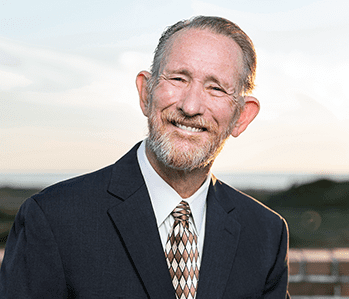
The purpose of this blog is to stimulate thought and discussion about important issues in healthcare. Opinions expressed are those of the author and do not necessarily express the views of CMDA. We encourage you to join the conversation on our website and share your experience, insight and expertise. CMDA has a rigorous and representative process in formulating official positions, which are largely limited to bioethical areas.
App Blogs, Ethics, and Public Policy
Lies, Love and Civil Discourse
July 11, 2024
by Robert E. Cranston, MD, MA (Ethics)
In August 2023, I posted a blog on this site entitled “Who Do you Believe, and Why?”, highlighting the difficulty of obtaining accurate information about current events. In the interim, we have moved into the final four months of the national election cycle. Recent statements and quotes from varying media outlets are at odds with each other. It becomes more and more difficult to find accurate news on political issues; unfortunately, our fact-checkers often are not as knowledgeable or objective as the people whose facts they are supposedly checking. I would refer you back to the previous blog where I outlined my method for attempting to obtain clean information.
As I thought about this, knowing that in the cacophony I was hearing some blatant lies and many half-truths, I began to wonder what kinds of lies there are, and which of them I am guilty of, particularly as I attempt to engage in civil political discourse? After all, before I get the speck out of my brother’s eye, shouldn’t I be working on removing the plank from my own?
So, what is a lie? One site from Pennsylvania State outlines three broad categories of lies—namely those of omission, commission and character. A broad Google search, however, delineates a number of subcategories of lies, including lies of omission, broken promises, contextual lies, fabrication, exaggeration, plagiarism, minimization and white lies.
In Exodus 20:16, the ninth commandment specifically speaks to lying about a neighbor in giving false testimony. In Matthew 5:37, in the Sermon on the Mount, Jesus broadens this to include the idea that we shouldn’t have to take an oath to prove our honesty, our word should be good enough. “My word is my bond” is the motto of the London Stock Exchange, but it has come into common usage as an expression of assurance that no deceit or guile is present in one’s speech or actions. We should be people whose word is as trustworthy as if we were providing bond, or as another expression has it, as good as gold.
Merriam Webster has multiple definitions of a lie, but the ones most relevant to this discussion include: 1) an assertion of something known or believed by the speaker or writer to be untrue with intent to deceive; 2) an untrue or inaccurate statement that may or may not be believed true by the speaker or writer; and 3) something that misleads or deceives.
As Christians, we have an obligation to be people of our word and to be known for our integrity. On the other hand, there is a brutally honest approach to communication that is not Christ-like. It isn’t necessary to say everything that enters our minds, but avoiding all speech that might offend can be a sin as well. In this age of cancel culture, it is tempting to remain incognito on culturally divisive issues, especially on social media, at times out of cowardice rather than love for our neighbors.
It’s difficult to know to whom to give credit for this quote, variably attributed to Edmund Burke, John Stuart Mill or Martin Luther King. Jr, but possibly to an unknown author, “The only thing necessary for the triumph of evil is for good men to do nothing.” Regardless of who originally said this, we do have a responsibility to call out evil and not to remain silent when we see it. Otherwise, like the watchmen on the wall (Isaiah 62:6-7), we will be held responsible for the fall of the city.
Ephesians 4:15 says we are to speak the truth in love. While context shows that this is addressing the body of Christ and the way we interact with fellow-believers, we see by Jesus’ example that He was able to love and influence people with whom He completely disagreed—tax collectors, thieves, prostitutes, “sinners” and even Sadducees and Pharisees (Nicodemus, Joseph of Arimathea)—and bring them into the kingdom of God. If we only interface with like-minded people, we will have little effect on the world at large.
Today, recognizing the numerous forms of lying to which we are tempted, our communication is to be characterized by veracity, courage and love. Especially in our highly polarized society, when we see the stakes of political decisions as being so high, it is tempting to fudge the truth to win an argument, or avoid speaking the truth, in order to keep the peace and avoid painful confrontation. We need to know if, when and how to speak and to remember that, while we are to be faithful, it is not our job to change the minds of everyone we engage with, that political machinations will not ultimately solve all of society’s problems and that God is still in control.
CMDA seeks to be a loving, honest light in the darkness, and it has wrestled with a number of the social and political issues of the day. For further guidance as to engaging those you meet, work with, and love, please check out CMDA’s Position Statements. Scripture, the Holy Spirit and these statements will help you as you share.

